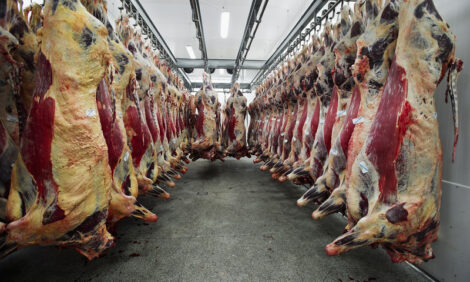



Heavy Irish Rains Affect Livestock Farms
IRELAND - The cumulative effects of the ongoing heavy rains are now having a serious impact on livestock farms across most of Ireland. Many affected farmers have rehoused cattle particularly on heavy soils, while they wait for ground conditions to improve.Recent heavy rains, combined with a poor outlook over the next ten days, will create a more widespread problem with urgent actions necessary to manage the situation on many farms, says Teagasc.
Generally at this time of the year some prolonged wet weather can be tolerated as the recovery period is rapid when conditions improve. However, this year ground conditions have continued to deteriorate resulting in serious damage to fields and poor utilisation of available grass. Soil temperatures are currently two-to-three degrees below normal for May and recorded grass growth rates are well below normal levels. Current growth rates are less than 50 per cent of average for this time of year.
The priority on livestock farms at this point is to take immediate actions to minimise the additional costs incurred in the medium-term. On dairy farms affected by the weather, Matt Ryan, Teagasc dairy programme manager, advises that dairy farmers try to minimise poaching damage by practicing on-off grazing and by feeding up to 4-6 kilos of concentrates per cow where necessary. In more extreme situations cows may have to graze some silage ground or be fed pit silage.
On suckler beef farms, Bernard Smyth, Teagasc cattle programme manager, said that the priority for grass should be given to spring-calving cows to maintain milk yield. On-off grazing should be considered, where there is access to a suitable stand-off area, supplementary feed may be required. Lighter stock can remain at grass if ground conditions permit. Concentrates plus minimum roughage may be an option for indoor feeding where stock must be housed. Housing stock will allow grass covers to improve and will ensure grass is available when ground conditions permit stock to be turned out.
Where silage swards are gone too strong, attempting to graze them may result in poor utilisation, while undermining next winter’s fodder supplies. If fields have just been let up for silage, grazing these swards will help to get over the current short-term difficulties.
TheCattleSite News Desk


